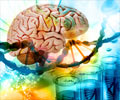When it comes to choosing our circle of friends, researchers have found that one factor that plays an important role is our genes.
When it comes to choosing our circle of friends, researchers have found that one factor that plays an important role is our genes. The study was carried out by researchers at Virginia Commonwealth University.
They found that as individuals develop, genes become increasingly important in influencing how peer groups are chosen. The finding, the researchers insist, is important as it offers an insight into which individuals may be at risk for future substance use or other externalising behaviours such as conduct and antisocial personality disorder.“As we grow and move out of our own home environment, our genetically influenced temperament becomes more and more important in influencing the kinds of friends we like to hang out with,” said Kenneth S. Kendler, M.D., a professor of psychiatry and human genetics in VCU’s School of Medicine and lead author on the study.
“The study shows how genetic and family environmental factors influence the ways in which we create our own social environment as we grow,” he added.
As a part of their study, the researchers examined peer group deviance among approximately 1,800 male twin pairs from mid-childhood to early adulthood, between 1998 and 2004.
Through a series of interviews, researchers found that genetic factors increasingly impact how male twins make choices as they mature and develop their own social groups.
“The road from genes to externalising behaviours like drug use and antisocial behaviours is not entirely direct or biological,” Kendler said.
Advertisement
“Our results demonstrate clearly that a complete understanding of the pathway from genes to antisocial behaviours, including drug abuse, has to take into account self-selection into deviant versus benign environments.
Advertisement
Supported by the National Institutes of Health, the study appears in the August issue of the Archives of General Psychiatry, a journal of the American Medical Association.
Source-ANI
LIN/J







